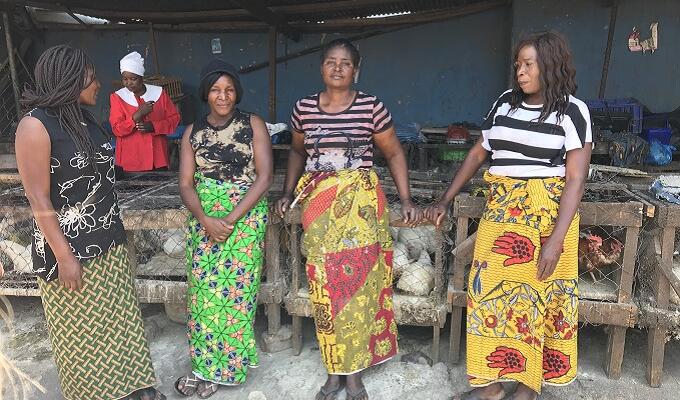
Anticipating the humanitarian crisis with innovative financial means
Impact investing as a response to long-term displacement
The world is witnessing the highest number of people fleeing conflict since the end of World War II, with approximately 71 million people forcibly displaced. To add to this, as COVID-19 spreads globally, we have seen a disproportionate impact on the world’s most vulnerable populations. Displaced populations facing widespread stigma, discriminatory regulations and restricted access to safety nets, are likely to be the hardest hit. This dramatic rise in numbers, with no foreseeable end to conflict, puts the humanitarian response and financing system under a great deal of pressure.
Distressingly, the amount of time refugees are away from their homes keeps increasing. Today, over 80% of refugees have been displaced for five years and 20% of refugees for over 20 years. The humanitarian system is meant to react to sudden onset crises. In protracted displacement, where individuals are unable to return home for more than five years after a shock, the priorities necessarily shift from life-saving emergency aid to livelihoods, education and economic opportunity. To keep up, the response has to fundamentally change from reaction to anticipation and from aid to economic resiliency.
The right kind of financing
We need a solution to be market-led to address existing gaps in long-term, scalable and anticipatory financing. Only then will it have the potential to attract capital at scale, including from the private sector. Impact investing, with its emphasis on social and financial returns, could complement the toolkit of crisis response by tapping into a spectrum of capital. By targeting either market-rate or concessional returns, supported through blended finance, the range of flexible instruments expands. Such investments explicitly integrate social impact into the structure, ensuring that all parties are aligned on creating and measuring positive impact.
Financial inclusion as a pillar to enhance self-reliance
Access to finance will be a critical factor in a displaced individual’s ability to be more self-reliant and financially resilient while reducing reliance on aid. For example, a refugee entrepreneur living in a temporary but stable setting needs credit and savings, not just aid, to establish an enterprise. There is clear evidence to suggest that financial services are in demand among displaced populations. Almost 50% of adults displaced in a humanitarian crisis have savings, but only over 7% have these savings at formal financial institutions. Further, the shift to cash transfers by humanitarian agencies alongside an increased usage of mobile phones and technology provides an accelerated entry point for financial services.
Over the last 20 years, Developing World Markets (DWM) has worked with financial institutions dedicated to responsibly serving vulnerable communities. DWM has partnered with Innovest Advisory, a development consultancy focused on fragile contexts, to design a long-term, market-based product to address protracted displacement. Through this partnership and with the help of survey responses from financial institutions, DWM found that appropriately priced capital and capacity building are key requirements to achieving impact targets.
In order to build the market for scaling financial services to displaced populations, financial institutions will need to pilot and test innovative underwriting processes or customized financial products. These initiatives could be supported by a donor-funded, technical assistance facility to help companies implement displacement-inclusive business practices and procedures, with relevant monitoring mechanisms in place. In addition to integrating impact and investment management processes, another innovative structure of linking fund manager incentives with impact performance alongside financial performance has been identified as a powerful tool to align incentives.
These insights guided the design of a proof-of-concept private equity strategy, the ‘Global Displacement Fund.’ Currently in development, the Fund aims to enhance financial resilience and livelihood opportunities for displaced and vulnerable host populations by incorporating structural elements identified from DWM’s and Innovest’s research. It is our hope that as more impact investment pilots are implemented and scaled, we will see an increase in capital flows that address the complex and urgent issue of forced displacement. To respond adequately, there is no other alternative.



